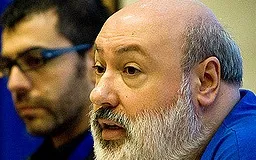
Huacal started as a group of women who went on a holiday trip to El Salvador. During their stay, these women couldn’t help but notice how much help the population living in rural areas needed.
By that time, the population was politically connected to the Front Farabundo Martí, and they had been fighting against the government army up untill the end of the Civil War in 1992. Huacal was born in 1993 to help the families who were on the losing side of the conflict and had been displaced to rural areas with no services by the government.
The founders of Huacal built a personal relationship with some of the affected families, and through this contact they started small but practical campaigns to raise fundings for the families’ specific needs. As it was El Salvador’s army that had displaced them, the displaced families had no support at all from the government. In the beginning, Huacal would organize punctual activities in Catalonia to collect certains sums of money that were later used for specific things in Santa Fe rural area, like building a bridge or a road. On 1990 the Coordinadora de Comunidades Unidas de Usulután(COMUS) was born, and it collaborated with Huacal. This COMUS association had appeared to supply the need of development programs in vulnerable rural areas inhabited by families who had to start from 0 after the war. I became an active part of Huacal NGO on 2004, but I know that by 2002 Huacal was basically focused on the rural area of Santa Fe. Between 2002 and 2004 it became increasingly clear that our merely supportive task didn’t make sense anymore, especially because of the work we had already been doing in collaboration with the locals.
Before 2004 we still worked with the money we had obtained from specific campaigns in Catalonia, but from 2004 on we began broadening our network and we started to collaborate with other nonprofits besides COMUS. We improved our perspective and we decided to improve the life quality of the area’s population. Then organizations like TNT (Tiempos Nuevos Teatro, New Times Theatre in Spanish) emerged: TNT is a nonprofit that brings drama to isolated areas or vulnerable groups like elders, prisoners or women. TNT offers many cultural activities in the area to prevent the rural youth from massively becoming members of criminal gangs like the Mara. With a bigger network and good results , there had come as point where all Huacal could do was either grow or become an intermediary agent.
We chose to remain a small NGO and play the role of the intermediary agent: we all come from the third sector and we already knew how to present development projects and how to ask institutions for public fundings. Currently we travel to El Salvador once a year and we use the trip to contact our local friend organizations, like TNT or Red de mujeresMorazán. We ask these nonprofits which new development projects they have in mind and we ask them what do they need to make their projects come true. After each yearly trip we come back to Catalonia and we try to carry out our task as the intermediary agent we are: we receive Catalan public fundings from the ACCD (Agència Catalana de Cooperació al Desenvolupament) and we offer the money we receive to our friend organizations in El Salvador. Apart from the ACCD, we have also received fundings from the Barcelona City Council and the Catalan Agency of Youth, occasionally.
The Salvadoran children we met in the nineties are now coordinators of the service network in their area. I entered Huacal a bit later, but I can say we have seen them grow and improve their quality of life.



Add new comment